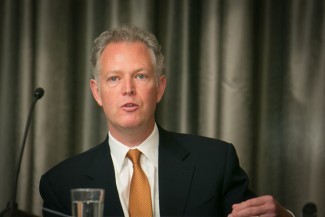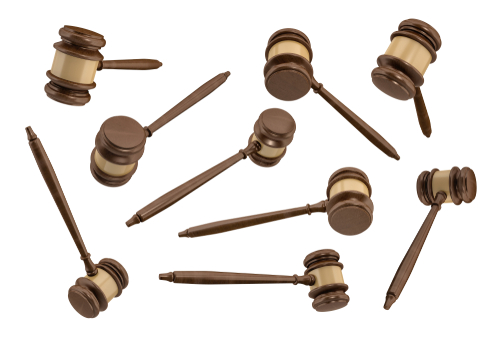Body cams could cut police misconduct complaints

“In a perfect world, every police officer would be wearing a body cam,” said Darcy Proctor, a Chicago lawyer. Photo by ©Kathy Anderson.
Requiring on-duty police officers to wear body cameras could drastically reduce misconduct complaints, according to speakers at a Friday ABA Annual Meeting panel, because false complaints could be determined quicker, and officers wearing the equipment would be more likely to follow policy.
“Liability for Alleged Police Misconduct: The Legal Landscape after Ferguson, Missouri” was sponsored by the Tort Trial and Insurance Practice Section.
“We are very much in favor of body cameras. In a perfect world, every police officer would be wearing a body cam,” said Darcy L. Proctor, a partner at Ancel, Glink, Diamond, Bush, DiCianni & Krafthefer in Chicago. Proctor often defends municipalities in civil rights actions.
The panelists discussed concerns regarding when the cameras should be turned on.
“I don’t want to be riding around in a patrol car with my partners, talking about things we have the right to talk about privately, and have that recorded,” said Cedric L. Alexander, the chief of police for DeKalb County in Georgia.

Police departments “recruit with helicopters and high-speed chases. When you recruit that way, that’s generally the type of mindset you attract,” said Cedric Alexander, chief of police for DeKalb County in Georgia. Photo by ©Kathy Anderson.
But technology, he added, can solve that problem.
“There’s technology now that anytime my patrol car lights go on, or I remove my gun or Taser, the technology talks to the body camera, which automatically goes on,” said Alexander, who served on the President’s Task Force on 21st Century Policing. The task force submitted its final report (PDF) in May. And on July 23, the White House and the Office of Community Oriented Policing Services co-hosted a forum to discuss implementation of the task force’s recommendations.
Evidence tampering is another concern. Michael Haddad, a plaintiffs lawyer in Oakland, California, mentioned officers putting Vaseline on body camera lenses to blur footage. There have also been incidents, he said, in which the antennae that pick up and transmit body cam footage have been torn from squad cars.
“I read that the department fixed those cameras, and it was never brought up. It should have been seen as a very serious matter, involving the destruction of public property and the obstruction of justice,” said Haddad, a partner with Haddad & Sherwin and president of the nonprofit National Police Accountability Project.

Michael Haddad, a California lawyer. Photo by ©Kathy Anderson.
The panel also addressed recruitment and training. According to most speakers, if municipalities want to increase public safety, police groups should find recruits who see themselves as guardians rather than warriors.
Police departments “recruit with helicopters and high-speed chases. When you recruit that way, that’s generally the type of mindset you attract,” Alexander said.
“Do we have to have tactile units, SWAT teams and high-power rifles? In certain situations, yes,” he added. “But for the day-to-day work that police departments do across the country, 99 percent of it is about customer service.”
• See what people are saying about the events on social media, and follow along with our full coverage of the 2015 ABA Annual Meeting.



